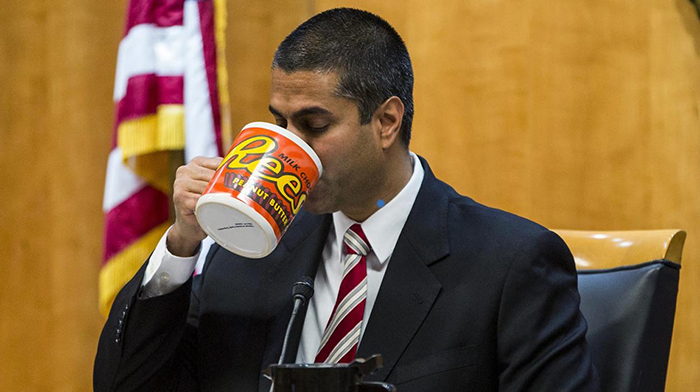We all know that FCC Chair Ajit Pai will be retiring from his position on January 20. This is a normal occurrence when there’s a presidential election. His predecessor, who is generally viewed more favorably by the media, did the same and many other chairpeople did as well.
Mr. Pai’s public image isn’t really that great in some circles, because of some of the ways the FCC has behaved in the past four years. But that’s getting political, and I don’t want to go there. Mr. Pai would rather you remember him for his hardline stance on robocalls.
A problem that is most difficult to fix
I’ve written about the robocall problem before. I’ve even told you that it has gotten better. I look at the number of robocalls I got during election season and they were pretty bad this year. But I don’t think they were nearly as bad as they were four years ago. I still get about 5 robocalls a day but there were times in the past I was getting 20 or 25.
AT&T deserves a lot of credit for their part here, for sure, and I’ll give grudging credit to Mr. Pai as well. He’s looking for more than that, because at least one source is reporting that he wants even more restrictions on robocalls. You can read the order here.
Closing the loopholes
Mr. Pai’s proposed rules would limit robocallers from places you’re affiliated with. Right now there is no restriction on getting robocalls from your own political party, from companies you’ve done business with, or from the school your kid goes to. The new rules limit this sort of activity to three per month, and there must be an opt-out procedure just like there is for other robocalls.
Looking through the order, there are still definitely some exemptions. First of all the order seems to only apply to cell phones. If you’re on a land line, well game on. It also seems that calls for genuine health and safety reasons — like your kid’s school being closed — are also exempt.
What’s not exempt, for example, are political calls from the same candidate or group. Or, for example calls from a contractor you’ve used before, asking if you’re ready for solar. These are the things that the new order seeks to stop.
But let’s be honest will it really make a difference?
No.
No it will not make a difference. Because I as a regular guy can already see how this isn’t going to stop anyone. Robocallers use offshore internet accounts to make calls. They spoof caller ID in ways that are nearly impossible to catch. It’s not going to help at all.
Not only that, but this order doesn’t stop 17 different organizations from calling you for the same purpose. You will still get as many calls from companies trying to sell you solar because they’re all different companies. They won’t call you more than three times, but there will be different companies calling you each time.
And, if you read the order, a lot of the responsibility for this is put on the cell carriers. (Remember, this order applies only to wireless, not land line.) So when it does fail, the FCC will simply say they did their part and the cell carriers will be held up to blame. It’s built-in deniability.
And as I have said, the robocall issue has gotten better. It’s probably 90% better than it was, and I really doubt it could get much better. People today don’t take calls from people they don’t know, which is a shame. But I do it and I’m sure you do too.
In today’s disconnected society it would be nice if you felt like your phone (and your email box for that matter) were safe places where you could trust what was coming in. But that’s not the world we live in, and this order isn’t going to change that.
And the bottom line is…
Get ready for robotexts
Nothing in this order is aimed at robotexts, which I believe are the next wave of “spam” coming our way. Get ready for 100 texts a day from companies you’ve never heard of, promising something you don’t want. Legitimate businesses are looking at this sort of communication already, and I’m sure the scammers are looking just as hard. Oh well, I am sure Mr. Pai thinks that’s a problem for the next administration. And it probably is.





